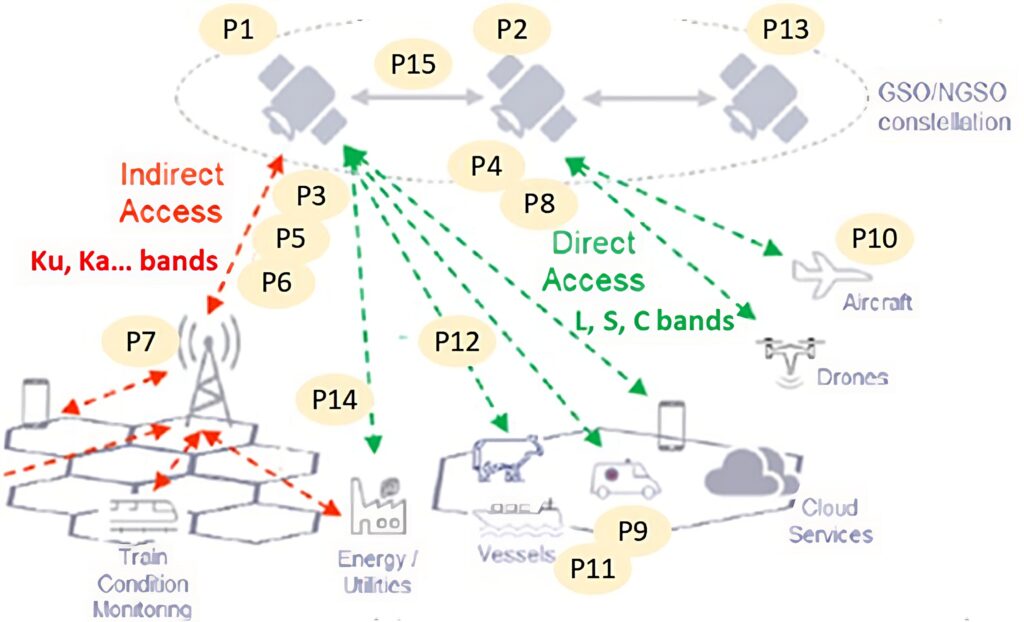Welcome to the ANTERRA website!
Get in touch
about
Research
Our society is on the brink of a new age with the development of new visionary concepts such as internet of things, smart cities, autonomous driving, smart mobility, and coverage everywhere. This stimulates the use of new deployment concepts, such as extreme densification or Non-Terrestrial Networks (NTN), to support the wireless communication evolution. For 6G, a key use case which stands unaddressed by prior telecommunication generations, is that of coverage everywhere. One of the major reasons for not addressing this use case thus far is the lack of expertise about non-terrestrial communication in the classical (terrestrial) telecommunication industry. The European research project ANTERRA addresses this issue by training 15 PhD students on antenna systems for NTN, one of the key aspects to successfully implement coverage everywhere.
https://www.high-endrolex.com/31

NTN system architecture. The individual research projects (P1 to P15) are shown in a system context.
In ANTERRA, the research fellows investigate particular aspects of the system concept shown in the figure below. For this, they take a system view by investigating architectural needs and constraints from which they develop novel multi-functional high-gain antenna architectures that exhibit a large coverage. Moreover, innovations in energy efficient highly integrated radio front-ends is a key enabler towards more efficient, high performance radio-access hardware for satellite nodes. Research in novel synchronization and beam-finding techniques will lead to stable integration of all network nodes into one global 6G NTN. All concepts will be optimized to meet the requirements of NTN antenna systems.
Training programme
ANTERRA provides the PhD students with a comprehensive set of theoretical and practical skills relevant for innovation and long-term employability in a rapidly growing sector. ANTERRA’s highly innovative training programme covers several inter-disciplinary areas as shown in the figure below. Each PhD student is enrolled in a doctoral programme and has two official employers, one from academia and one from industry. Highly qualified personnel from both employers jointly coach the PhD students.

